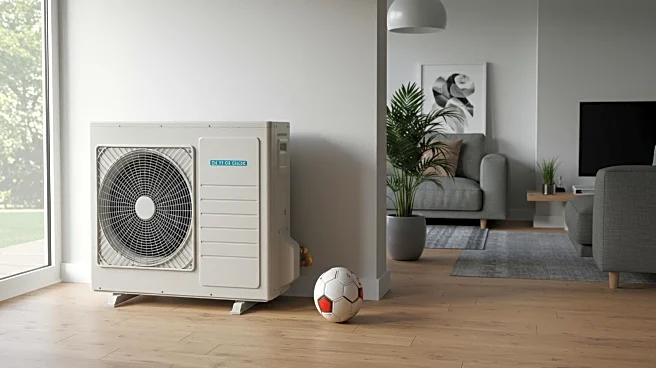What's Happening?
Federal incentives for home energy improvements, including heat pumps, are set to expire at the end of the year. This has prompted homeowners to consider switching to heat pumps, which are touted as climate-friendly alternatives to traditional heating systems. Heat pumps use electricity to transfer heat, making them more efficient than conventional systems. There are two main types: air-source and ground-source. Air-source pumps are more affordable and suitable for moderate climates, while ground-source pumps, though more expensive, offer greater efficiency in extreme weather conditions. Homeowners like Bill Gerosa have seen significant reductions in energy costs after installing heat pumps, aided by state and utility incentives.
Why It's Important?
The expiration of federal incentives could impact the adoption rate of heat pumps, which are considered cleaner and more efficient than systems powered by natural gas. Heat pumps have outsold furnaces since 2021, indicating a shift towards greener energy solutions. The decision to switch is influenced by factors such as climate, cost, and availability of installers. The broader adoption of heat pumps could lead to reduced emissions, especially in states with milder weather and clean-energy options. This transition supports national goals for reducing reliance on fossil fuels and promoting sustainable energy practices.
What's Next?
As the deadline for federal incentives approaches, homeowners must decide whether to invest in heat pumps now or face potentially higher costs later. The availability of skilled installers, particularly for ground-source systems, remains a challenge. Increased demand may drive more HVAC professionals to specialize in heat pump installations, potentially lowering costs through competition. The continued development of heat pump technology could further enhance efficiency and appeal, encouraging more widespread adoption.
Beyond the Headlines
The shift towards heat pumps reflects a broader trend in energy consumption and environmental responsibility. As consumers become more aware of their carbon footprint, the demand for sustainable home improvements is likely to grow. This transition also highlights the need for policy support to facilitate the adoption of green technologies, ensuring that financial incentives align with environmental goals.










